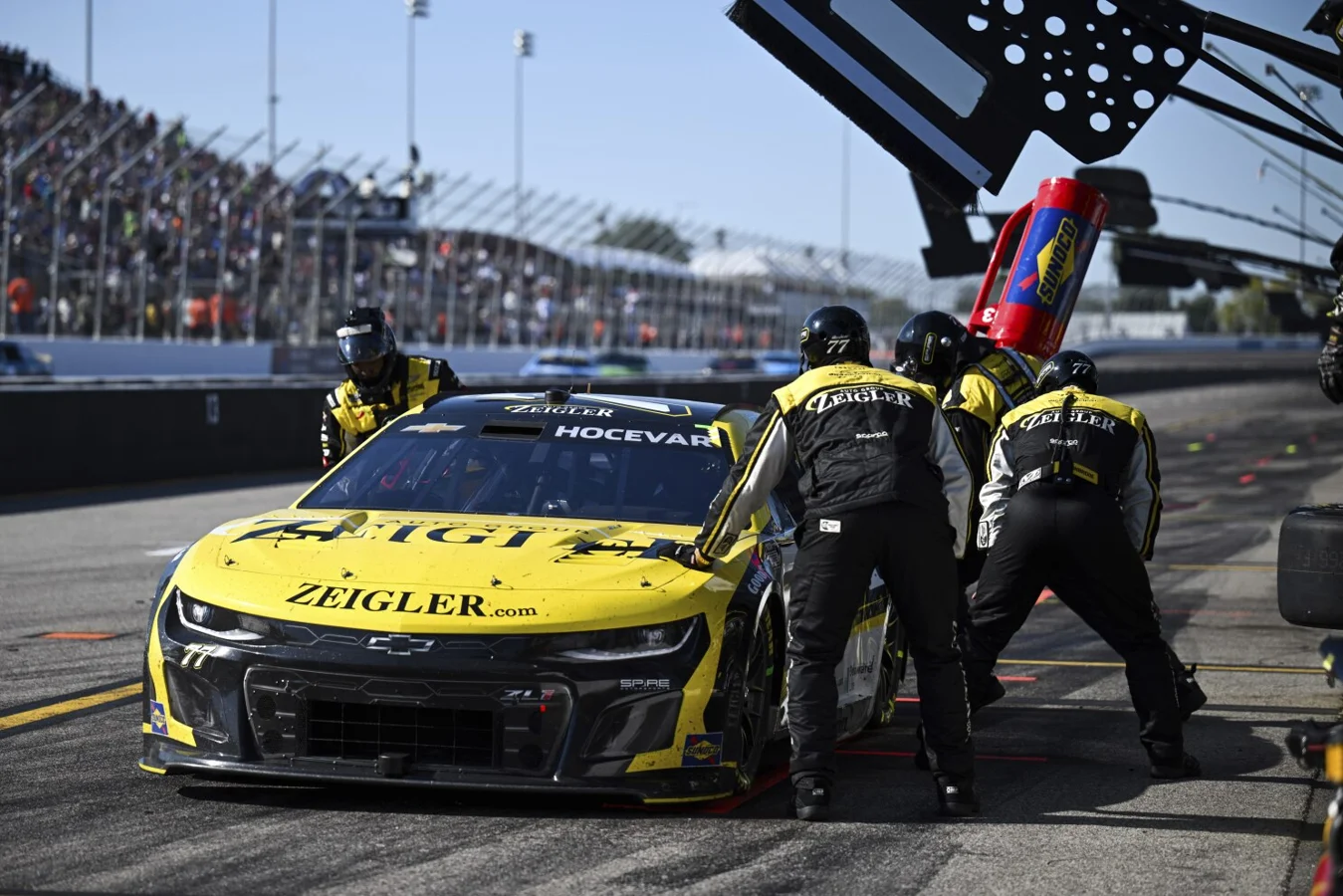Carson Hocevar has addressed the recent $50,000 NASCAR penalty following an incident at Kansas Speedway, where the driver was fined for spinning his tires while safety teams were tending to his car. The Carson Hocevar NASCAR penalty came after a late-race incident on Sunday, triggering significant discussion about driver intent and NASCAR’s strict enforcement of safety measures.
Incident During Kansas Speedway Race Leads to Fine
On Sunday at Kansas Speedway, Hocevar’s car came to rest on the backstretch after spinning out on Lap 260 of 273. While safety workers were attending his vehicle, Hocevar restarted the engine, and his tires spun despite a tow truck being in front of him. NASCAR officials fined him on Wednesday, stating that he had violated key safety sections of the rulebook by revving and spinning his tires during the incident, which was visible to race officials and fans alike.
Explaining the situation, Hocevar clarified that his intent was never to put anyone at risk.
“I fired it up just to throw it into neutral,”
Hocevar explained, via Matt Weaver of Motorsport. He noted that it can be challenging to place the car in neutral in such moments, stressing that he did not purposely spin the tires to move the vehicle. He added,
“Honestly, I didn’t know it spun the tires. Obviously, there’s a tow truck in front of me so I’m not going anywhere.”
Hocevar, reflecting on what happened, admitted to a learning experience. He said that the wheels were still off the ground; while trying to sort the car’s position, he unwittingly triggered a tire spin.
“But they judge based off of actions and visibility and not intent, right?”
Hocevar remarked. He acknowledged that officials had little choice given the visible evidence:
“The tires spun, black and white, so next time I might just have them rock the car to throw me in neutral.”
The moment was captured and circulated through NASCAR’s communications channels, underscoring the seriousness of safety compliance in the sport. NASCAR, prioritizing the safety of its workers, officials, and the public, enforced the rulebook’s clear guidelines.
“NASCAR doesn’t have the intent. They can’t know the plan and story behind everything and judge everything and sometimes they have to call it the way they see it.”
Hocevar continued to reflect on how race officials must respond to visible actions rather than motorists’ intended actions.
Rulebook Violations Explained
NASCAR cited Hocevar for violating Sections 4.4.B and 4.4.D of its Rule Book during the Kansas Speedway event. Section 4.4.B prohibits actions that may jeopardize event safety or create danger to competitors, officials, spectators, or others present. Meanwhile, Section 4.4.D addresses behavior considered detrimental to NASCAR or the sport of stock car racing.
Discussing the ruling, Hocevar did not debate the penalty, accepting NASCAR’s decision as fair given the circumstances and evidence.
“It got to like 1200 RPMs right? I just fired it up, threw it into neutral and shut it off, and I didn’t even realize the tires were spinning,”
he stated, confirming his agreement with how the situation was handled: “They called it right.”
Hocevar’s Season Standing and Future Races
Now in his second season with Spire Motorsports, Carson Hocevar finds himself 22nd in the driver standings. He has earned eight top-10 finishes, two top-5 results, and seven races ending in DNFs, underscoring a challenging but eventful year. Hocevar is set to start 27th in the upcoming race at the Charlotte ROVAL, where he aims to apply lessons learned from the Kansas incident. The penalty and its fallout have sparked ongoing conversations about protocol, safety, and the delicate balance race officials must strike when enforcing split-second competition rules.
The Carson Hocevar NASCAR penalty serves as a reminder of the intense scrutiny and rigorous standards drivers face in the sport, especially when the safety of workers like those at Kansas Speedway is on the line. As NASCAR and its competitors continue through the season, both will remain under the spotlight with enforcement decisions intended to protect everyone involved in the high-stakes environment of professional racing.
Here's a look at the incident involving Carson Hocevar at Kansas Speedway. https://t.co/MexZKWjeMv pic.twitter.com/FnWTbxDnck
— NASCAR Communications (@NASCAR_Comms) October 2, 2025
